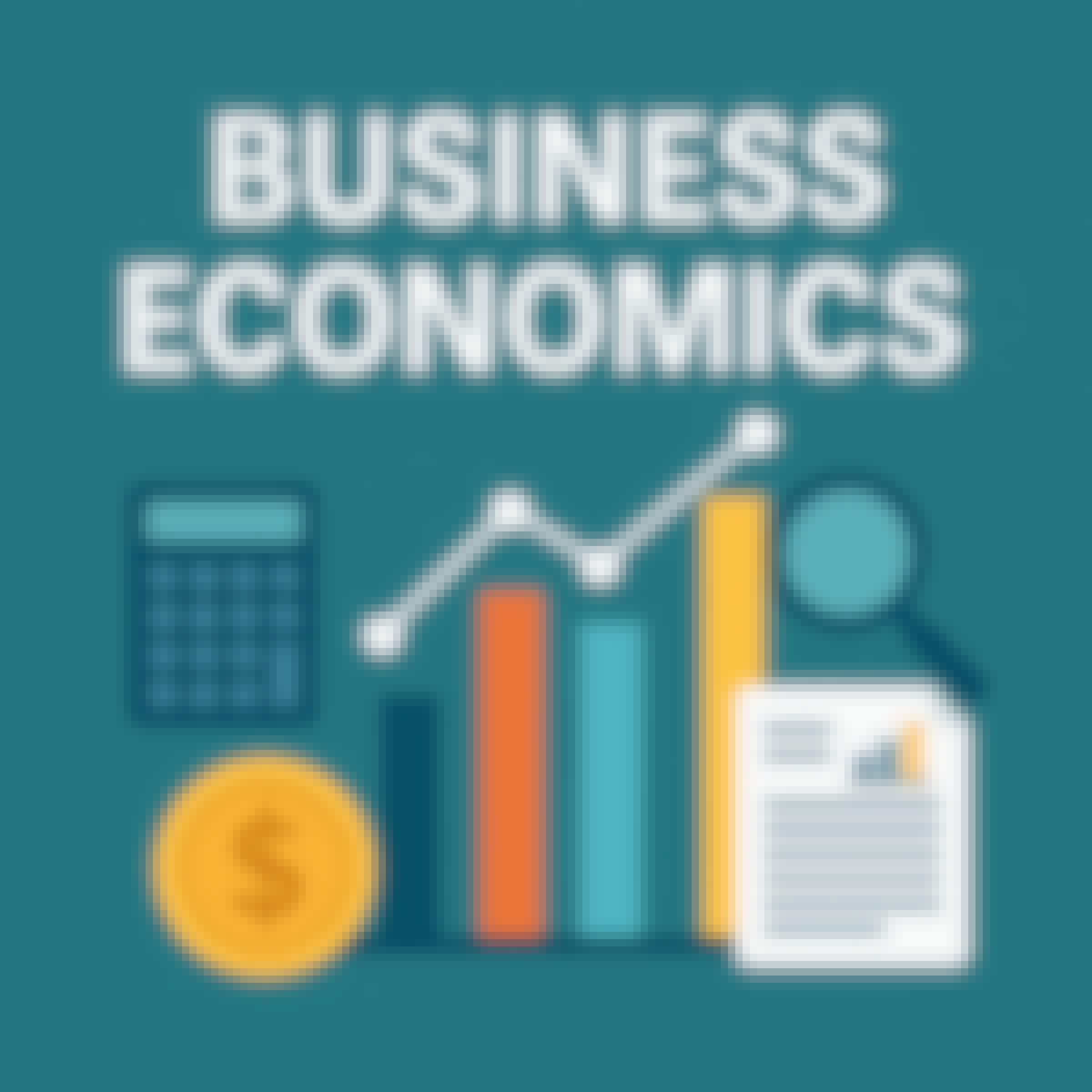- Browse
- Supply Chain Analytics
Results for "supply chain analytics"
 Status: NewNewStatus: Free TrialFree TrialU
Status: NewNewStatus: Free TrialFree TrialUUniversity of Illinois Urbana-Champaign
Skills you'll gain: Social Determinants Of Health, Community Health, Product Development, Health Systems, Business Modeling, Health Equity, Lean Six Sigma, Market Analysis, Competitive Analysis, Performance Improvement, Process Improvement, Healthcare Industry Knowledge, Stakeholder Analysis, New Product Development, Innovation, Decision Making, Operations Management, Operations, Problem Solving, Leadership
Build toward a degree
4.8·Rating, 4.8 out of 5 stars9 reviewsIntermediate · Specialization · 3 - 6 Months
 Status: Free TrialFree TrialF
Status: Free TrialFree TrialFFractal Analytics
Skills you'll gain: Ideation, AI Product Strategy, UI/UX Research, Brainstorming, Innovation, Design Thinking, User Research, AI Enablement, Generative AI, Competitive Analysis, User Experience Design, Human Centered Design, Data Ethics, Persona (User Experience), Artificial Intelligence, Problem Solving, Data Collection, Data Synthesis, Critical Thinking
4.5·Rating, 4.5 out of 5 stars15 reviewsBeginner · Course · 1 - 4 Weeks
 Status: PreviewPreviewS
Status: PreviewPreviewSS.P. Jain Institute of Management and Research
Skills you'll gain: Product Strategy, Strategic Marketing, Marketing Management, Marketing Strategies, Consumer Behaviour, Target Market, Marketing Communications, Product Lifecycle Management, Integrated Marketing Communications, Marketing Analytics, Brand Strategy, Marketing Channel, Market Analysis, Price Negotiation, Value Propositions
4.8·Rating, 4.8 out of 5 stars32 reviewsBeginner · Course · 1 - 3 Months
 Status: Free TrialFree TrialH
Status: Free TrialFree TrialHHoward University
Skills you'll gain: Regression Analysis, Correlation Analysis, Financial Modeling, Spreadsheet Software, Business Analysis, Business Modeling, Business Analytics, Microsoft Excel, Data Modeling, Statistical Analysis, Analysis, Forecasting, Risk Analysis, Data Analysis, Product Assortment, Complex Problem Solving, Predictive Modeling, Business Mathematics, Price Negotiation, Business Strategy
4.7·Rating, 4.7 out of 5 stars33 reviewsIntermediate · Specialization · 1 - 3 Months
 Status: Free TrialFree TrialR
Status: Free TrialFree TrialRRice University
Skills you'll gain: Ancient History, Timelines, Social Impact, Social Justice, Anthropology, Scientific Methods, World History, Social Sciences, Sustainable Development, Peer Review, Environment, Case Studies, General Science and Research, Environmental Science, Community Development, Investigation, Climate Change Programs, Spatial Analysis, Geographic Information Systems, Data Analysis
4.6·Rating, 4.6 out of 5 stars33 reviewsBeginner · Specialization · 3 - 6 Months
 Status: Free TrialFree TrialM
Status: Free TrialFree TrialMMicrosoft
Skills you'll gain: Microsoft Azure, Threat Modeling, Cloud Security, Continuous Monitoring, System Monitoring, Security Information and Event Management (SIEM), Security Management, Threat Detection, Threat Management, Application Performance Management, Event Monitoring, Vulnerability Management, Brute-force attacks, Incident Response, Query Languages
4.6·Rating, 4.6 out of 5 stars12 reviewsIntermediate · Course · 1 - 4 Weeks
 Status: Free TrialFree Trial
Status: Free TrialFree TrialSkills you'll gain: Data Presentation, E-Commerce, Analytics, Key Performance Indicators (KPIs), Web Analytics, Google Analytics, Marketing Analytics, Generative AI, Data Analysis, Business Strategy, Data Processing, Artificial Intelligence
4.8·Rating, 4.8 out of 5 stars27 reviewsIntermediate · Course · 1 - 4 Weeks
 Status: Free TrialFree Trial
Status: Free TrialFree TrialSkills you'll gain: Data Storytelling, Data Visualization, Data Visualization Software, Dashboard, Data Modeling, Data Access, Business Analytics, UI/UX Strategy, Data Analysis, Data Governance, Performance Tuning, Cloud Services, Self Service Technologies, Version Control
4.4·Rating, 4.4 out of 5 stars20 reviewsBeginner · Course · 1 - 3 Months
 Status: Free TrialFree TrialT
Status: Free TrialFree TrialTThe University of Notre Dame
Skills you'll gain: Business Ethics, Market Dynamics, Economics, Socioeconomics, Supply And Demand, Business, Corporate Sustainability, Social Impact, Public Policies
4.9·Rating, 4.9 out of 5 stars30 reviewsBeginner · Course · 1 - 4 Weeks
 Status: PreviewPreviewO
Status: PreviewPreviewOO.P. Jindal Global University
Skills you'll gain: International Finance, Game Theory, Business, Sustainable Business, Production Management, Market Analysis, Financial Systems
Build toward a degree
Beginner · Course · 3 - 6 Months
 Status: Free TrialFree Trial
Status: Free TrialFree TrialSkills you'll gain: Generative AI, Anomaly Detection, Predictive Modeling, Text Mining, Predictive Analytics, Advanced Analytics, Data Cleansing, Prompt Engineering, Natural Language Processing, Unstructured Data, Data Analysis, Data Preprocessing, Statistical Analysis, Time Series Analysis and Forecasting, Model Evaluation, Exploratory Data Analysis
4.4·Rating, 4.4 out of 5 stars22 reviewsIntermediate · Course · 1 - 3 Months
 Status: Free TrialFree TrialF
Status: Free TrialFree TrialFFractal Analytics
Skills you'll gain: AI Enablement, Business Leadership, Strategic Leadership, Responsible AI, Business Strategy, Generative Adversarial Networks (GANs), Data Strategy, Business Transformation, Strategic Decision-Making, Organizational Effectiveness, Deep Learning, Artificial Intelligence, Organizational Development, Human Centered Design, Data Quality, Design Thinking, Governance, User Centered Design, Ethical Standards And Conduct
4.6·Rating, 4.6 out of 5 stars18 reviewsIntermediate · Course · 1 - 3 Months
Searches related to supply chain analytics
In summary, here are 10 of our most popular supply chain analytics courses
- Healthcare Innovation, Design, Entrepreneurship: University of Illinois Urbana-Champaign
- Generative AI in User Research and Design Thinking: Fractal Analytics
- Marketing Management: S.P. Jain Institute of Management and Research
- Business Problem Solving: Howard University
- Introduction to Archaeology: Rice University
- Manage Security Operations: Microsoft
- GenAI for Digital Marketing and Ecommerce Analysts: Coursera
- The Power of Storytelling: How to Visualize Data in the Cloud: Google Cloud
- Why Business? What is the Role of Business in a Just and Humane Society: The University of Notre Dame
- Business Economics: O.P. Jindal Global University










